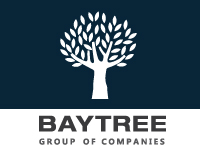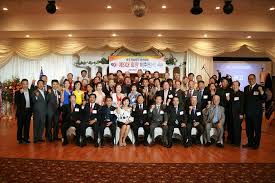CA
ON
부동산캐나다 (Korean Real Estate Post)
전화: 416-449-5552
1995 Leslie Street Toronto, ON
.jfif)
대형스크린,LED싸인 & 간판 - 대신전광판
전화: 416-909-7070
4065 Chesswood Drive Toronto, ON

K-포차 ...미시사가(만두향프라자)
전화: 905-824-2141
169 DUNDAS ST. E. #7 Mississauga, ON

준비된 바이어 그룹 , BAYTREE 이너써클
전화: 416-226-5999
7030 Woodbine Ave. Suite 103 Toronto, ON

스마트 디지탈 프린팅 - 인쇄 및 디자인
전화: 416-909-7070
4065 chesswood dr. Toronto, ON
.jfif)
토론토 민박 전문집
전화: 416-802-5560
Steeles & Bathurst ( Yonge) Toronto, ON

럭키조경 & 나무자르기
전화: 647-564-8383
4699 Keele St. Unit 218 Toronto, ON

호남향우회 (토론토)
전화: 647-981-0404
7 Bishop Ave. #2411 Toronto, ON

한인을 위한 KOREAN JOB BANK
전화: 6476245886
4065 Chesswood Drive Toronto, ON
.jpg)
한인 시니어 탁구협회
전화: 647-209-8933
1100 Petrolia Rd Toronto, ON
4.jpg)
골프 싱글로 가는길
전화: 647-291-2020
115 York Blvd Richmond Hill Toronto, ON

캐나다 공인 컨설턴트 - 한인크레딧 컨설팅
전화: 416-897-8438
1 High Meadow Place, Unit 2 North York, ON

It would be a place where all the visitors including me share the life stories and experiences through their activities,especially on life as a immigrant.
Why don't you visit my personal blog:
www.lifemeansgo.blogspot.com
Many thanks.
블로그 ( 오늘 방문자 수: 353 전체: 267,916 )
South Korean Ex-President Kills Himself - New York Times
lakepurity
2009-05-23
By CHOE SANG-HUN
Published: May 22, 2009
SEOUL, South Korea - Former President Roh Moo-hyun of South Korea, whose reputation as an upstanding political leader had been tarnished recently by a corruption scandal, committed suicide on Saturday by jumping off a cliff near his retirement home, according to his aides and the police.
Pool photo by Ahn Young-joon
South Korean President Roh Moo-hyun and his wife Kwon Yang-sook voting at a polling station in Seoul in December 2007.
Former S. Korean President Apologizes for Scandal (April 30, 2009)
Ahn Young-joon/Associated Press
South Koreans watch a television screen for the news on the death of former President Roh Moo-hyun at the Seoul Railway Station in Seoul, South Korea, on Saturday.
Lee Jae-Won/Reuters
Roh Moo-hyun, pictured in 2008, served as South Korea's president from 2003 to 2008.
Mr. Roh, 62, died while he was hiking on a hill in Bongha, a village near the southeast corner of South Korea, Moon Jae-in, Mr. Roh’s former presidential chief of staff, said during a news conference. He left a brief will for his family, Mr. Moon said.
Mr. Roh suffered fatal head injuries and was declared dead in a hospital in Pusan, the largest regional city, said Park Chan-jo, a police officer. Mr. Roh was accompanied by a bodyguard during his morning hike.
President Lee Myung-bak, Mr. Roh’s successor, found the news “difficult to believe,” his office said.
Mr. Roh, who had prided himself on being a clean politician during his term from 2003 to 2008, was questioned for 10 hours on April 30 by state prosecutors over his alleged involvement in a corruption scandal that has already landed some of his relatives and aides in jail.
“I can’t look you in the face because of shame,” Mr. Roh told reporters before he presented himself for questioning by prosecutors in Seoul, who had accused him of taking $6 million in bribes from a businessman while in office. “I apologize for disappointing the people.”
In his last posting on his Web site, on April 22, he wrote, “You should now discard me.”
He added: “I no longer symbolize the values you pursue. I am no longer qualified to speak for such things as democracy, progressiveness and justice.”
His apology was typical for a South Korean politician, who is expected to take moral responsibility for a corruption scandal that implicated aides and relatives, even if Mr. Roh denied most of the bribery allegations against him. But prosecutors had been considering indicting him on bribery charges.
In recent weeks, several of his aides and relatives had been arrested or questioned on charges of taking bribes. His elder brother also was arrested in December on bribery charges.
Prosecutors suspected that Mr. Roh, while president, solicited a total of $6 million from a shoe manufacturer, payments that are alleged to have been made to his wife, his son and his brother’s son-in-law. Both his wife and son have been questioned by the prosecutors.
Mr. Roh’s case, which involves a relatively unknown businessman, appeared relatively minor in scandal-ridden South Korean politics. Former presidents Chun Doo-hwan and Roh Tae-woo were imprisoned in the 1990s for collecting hundreds of millions of dollars from the nation’s biggest conglomerate.
The scandal and the ensuing criticism from his political enemies dealt a devastating blow to Mr. Roh.
In his will, which was released to the news media on Saturday, Mr. Roh wrote, “I owe too much to many people. Many people suffered too much because of me.”
He added, “I have thought about this for a long time.”
A former human rights and labor lawyer considered a political maverick, Mr. Roh swept into power in the December 2002 election on the crest of nationalistic ― and sometimes anti-American ― sentiments among young voters. During his campaign he famously declared that he would be the first South Korean leader “not to kowtow to the Americans.”
But his efforts to free South Korea from its traditional dependence on Washington in its diplomacy alienated many South Koreans.